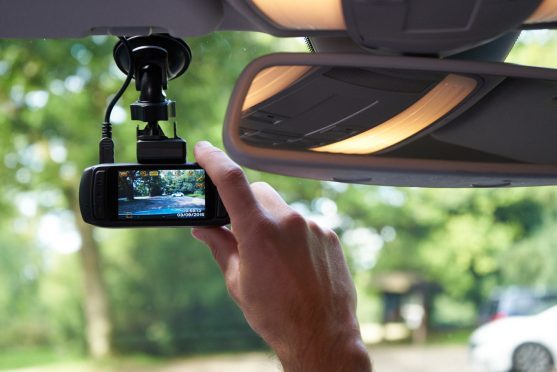Police in Scotland could soon be asking drivers to submit their own dashcam videos of dangerous motorists to help make roads safer north of the border.
Operation Snap, a recently introduced police initiative in Wales, invites drivers with dashboard-mounted video cameras to send them footage of driving offences via the internet.
The force has used the public’s submissions since the project launched in 2016 to investigate 205 separate incidents on Welsh Roads – resulting in 38 prosecutions, 28 fixed penalties and 86 being told to attend retraining courses.
New research by the AA, which involved 1,800 respondents in Scotland and 21,341 in total across the UK, found that 19% of Scottish motorists used dashboard cameras – with the highest usage in Britain being 24% in north-east England.
The survey found that of only around 2% of UK drivers said their primary reason for installing the technology in their vehicles was to record evidence of bad driving – 60% said they bought dashcams for insurance purposes.
When asked if officers north of the border would consider adopting a project similar to Operation Snap, a Police Scotland spokeswoman said: “We are looking at various opportunities to allow dashcam footage to be provided to Police Scotland and used as evidence.”
As well footage shot in cars, police in Wales have also accepted footage taken from helmet-mounted cameras worn by bikers.
Transport Scotland figures show there were 9,391 casualties across the country in 2017, including 146 fatalities.
Across the north of the country, there were 179 incidents in Aberdeen, 338 in Aberdeenshire, 89 in Moray, 432 in the Highlands, 15 in Orkney, 23 in Shetland and 22 in the Western Isles.
However, there were 1,514 fewer people injured in road accidents when compared to 2016.
Aberdeenshire East MSP Gillian Martin said: “Road safety in the north-east is paramount, and we should make sure a zero-tolerance approach is taken on dangerous driving.
“Allowing drivers to submit footage from their dashcams which could be used as evidence against offenders could result in more prosecutions in criminal cases, and make our roads safer.”
